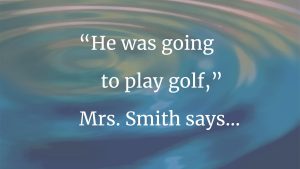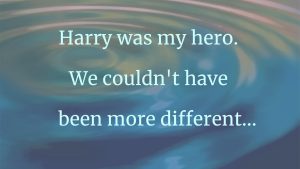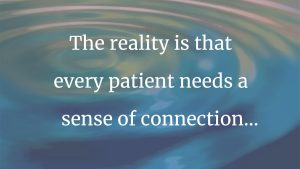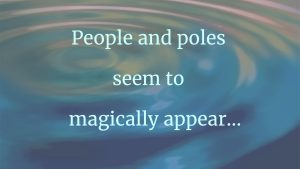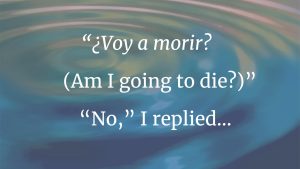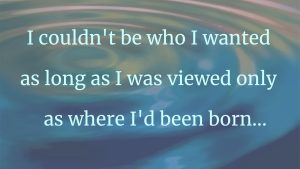Josephine Ensign
As a community health nurse, I work with homeless and street-involved teenagers. In almost thirty years of doing this work on both coasts, and in Thailand and Venezuela, I’ve gotten to know thousands of young people living on the margins of society.
I love working with them; they challenge me to see the world–and myself–in a broader way, one that opens up vistas of hope for positive change and a better future.
And I always find myself touched by their hopefulness and vulnerability. Their level of optimism varies depending on many factors: their socioeconomic background and level of education, their intelligence and social skills, their involvement with foster care, and factors such as the general level of chaos they experienced growing up, and whether or not they suffered childhood abuse. But no matter how bad their lives have been, these young people always seem to hold on to a sense of possibility.
Sometimes I talk to a homeless teen for ten minutes and feel convinced that he or she can make it out. But sometimes I’m wrong.
Take Will, for instance.
I met him in Seattle at a homeless-youth clinic where Will came for health care. He was nineteen (the same age as my son). And he was beautiful–tall, blond, articulate, and self-assured without being arrogant.
Will was also addicted to heroin. Although he’d graduated from high school and been accepted to a college in California, he wasn’t planning to go. “I want to get myself together enough so I can take advantage of the education.”
Will’s parents lived nearby. “I know they love me,” he told me. “But I can’t live at home anymore because we keep fighting over my using drugs and not going to college.”
For the past year, Will had lived under a bridge in Ravenna Park, in the University District. That neighborhood is popular with homeless kids; they can pass unnoticed amid the university’s scruffy students. Although Will blended in well, he wanted to get away from Seattle and pursue “Greyhound therapy”–the low-budget version of the “geographic cure,” i.e., travel as a means of getting away from your problems.
One fall evening, I knocked on a clinic examination-room door and opened it to find Will sitting on the exam table reading Jack Kerouac’s On the Road. He wore baggy green cargo pants rolled up to the knees, brown hiking boots, a long-sleeved thermal shirt and a black fleece vest. Nearby on the floor huddled his small backpack and soggy, rolled-up sleeping bag; tilted against the wall was a scuffed, sticker-plastered skateboard.
On Will’s lower right leg, I saw a jagged six-inch gash surrounded by a billowing yellow-green bruise and dotted by black stitches that looked like a row of little spiders. This was the result of a skateboarding accident that Will had suffered a couple of weeks back; he was here to get the stitches removed.
I cleaned the wound on Will’s leg, and we talked about Kerouac’s travels through Seattle, described in his book Desolation Angels.
As I prepared to snip the first stitch, Will leaned over to watch.
“I called my dad last week,” he said softly. “He actually talked to me this time.”
“Oh? How did that go?” I held the scissors and tweezers steady, awaiting his response.
“Well, he’s believing me about being clean and all. I haven’t used heroin in four months, and I’m going to NA meetings every week. He said I could move back home this summer to get ready for college.”
“That’s a good thing, right?” I peered over the top of my glasses at his face, inches from mine.
He smiled, looking more beautiful than ever. A healthy, golden boy.
“Yeah, that’s good. It’s time to move on with my life and not be a bum under a bridge.”
“What are you thinking of studying in college?” I asked, resuming my work on his leg.
“Well, I might major in political science,” he said. “I’m thinking of going to law school and then getting into politics. There’s a lot that needs changing in this world.”
I laughed and replied, “You’ve got that right.”
I knew he could do these things; I’d worked with other young people who had not only survived homelessness but had gone on to use their experience to make the world a better place. I could see Will being one of them.
A week later, I sat in a staff meeting one evening, gazing out the window at the young people beginning to gather at the clinic’s front door. It was raining softly, and most of them had pulled their black sweatshirt hoods over their heads.
It’s going to be a busy night, I thought.
Then the clinic counselor spoke.
“I’ve got some bad news. Will’s friends found him lying on a bed in a hotel room on Aurora Avenue…He overdosed on oxycodone. It’s not certain whether it was an accident or a suicide. Maybe both; you know how these things go.”
I felt stunned. Mentally I replayed my last conversation with Will, wondering if I’d missed any clues about his impending death, but I couldn’t find any.
In the months and years that followed, I’ve often remembered Will. I’ve remembered him every time I looked at my son, growing toward adulthood. I’ve remembered him every time I interact with a homeless patient who’s depressed or using drugs. I’ve especially remembered him whenever I talk with a young person who’s perched on the brink of success, of getting out and moving on; a time that can be particularly dangerous.
Most often, though, I remember Will’s smile. And I haven’t stopped hoping that every young person will make it out of homelessness, into a better world and a better life.
About the author:
Josephine Ensign teaches health policy at the University of Washington in Seattle. Her literary nonfiction essays have appeared in The Sun, Oberlin Alumni Magazine, Silk Road, The Examined Life Journal, Johns Hopkins Public Health Magazine and the anthology I Wasn’t Strong Like This When I Started Out: True Stories of Becoming a Nurse. Her blogMedical Margins covers health policy and nursing. “I write in order to understand and experience things more fully. I also write, as George Orwell says, ‘to push the world in a certain direction, to alter other people’s idea of the kind of society they should strive for.’ “
Story editor:
Diane Guernsey

